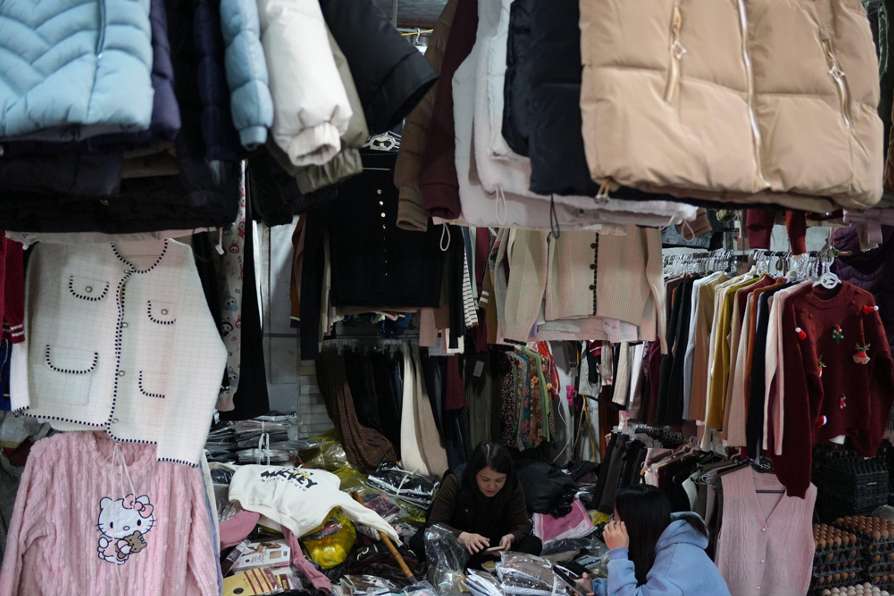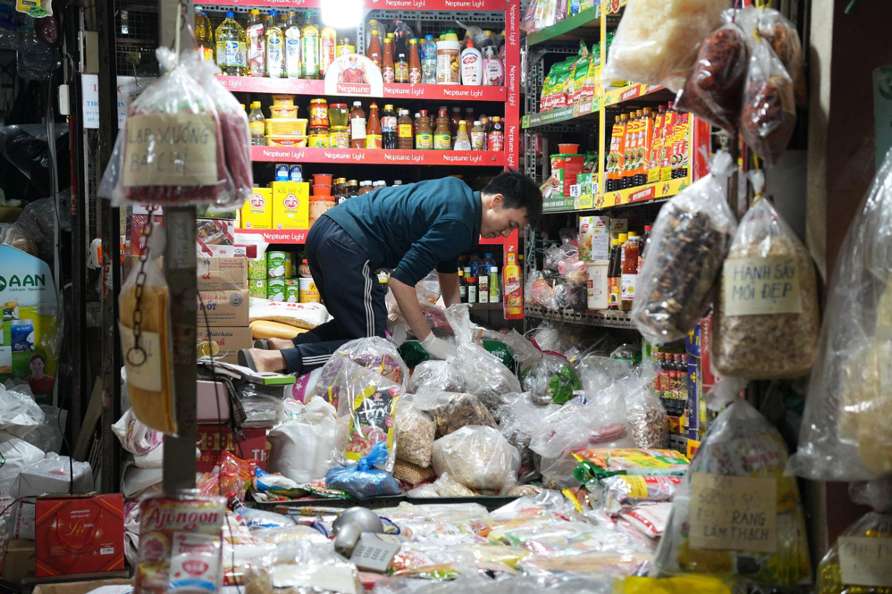Traditional markets face fierce competition
According to Lao Dong reporters, the number of customers coming to buy at traditional markets in Hanoi in the last days of the year is quite sparse. According to traders at the market, many customers now choose to buy on e-commerce platforms because they can choose from a variety of designs while sitting at home. There are even many incentives so the price can be cheaper than buying directly.
Starting a clothing business at Ngoc Khanh Market (Ba Dinh, Hanoi) since 2019, Ms. Nguyen Thu Huong said that the traditional retail market is facing fierce competition from the wave of online shopping, especially in the fashion sector.

"Nowadays, most people choose to shop for clothes online. Some of my customers often compare prices there, making it difficult for direct sales prices to be higher. The number of customers this year has decreased a lot compared to previous years.
Currently, my customers are mainly middle-aged women and people living around Ngoc Khanh area; only those who need to shop urgently will stop by the counter to see the products directly" - Ms. Huong shared.
For Tet gifts, cakes and jams, many retailers have prepared and imported goods in fairly stable quantities.
Mr. Do Anh Tuan - a confectionery trader in Cau Giay district (Hanoi) shared: "Currently, many consumers prefer Tet gifts and confectionery with more modern designs, often appearing in supermarkets and e-commerce platforms.
Therefore, the amount of goods my store sells this year will only serve regular customers and local consumers. Revenue may only be slightly higher than last year, but will basically remain stable."
Change to adapt
Although supermarkets and e-commerce platforms bring many conveniences to consumers, traditional markets continue to exist and promote strengths that other types can hardly compete with.
Talking to Lao Dong reporter, Dr. Nguyen Minh Phong - economic expert - assessed that traditional markets still have advantages in terms of price and freshness of food.
“Traditional markets have the advantage of diverse products and diverse customer groups. This is not only a place where people can shop and experience directly, but also a way of life for some consumers. Traditional markets help people to exchange emotions, social interactions, and culture, not just a simple wholesale and retail point” - Dr. Nguyen Minh Phong shared.
To adapt to the age of online shopping, traditional markets need to make certain changes. Many small traders have caught up with the trend by establishing agency models that combine modern technology, combining online and traditional shopping.
Mr. Tran Quang Son - a small trader in Cau Giay - said that near Tet, many small stores often order in large quantities. To avoid overload when customers come to import goods directly, he has implemented a service of ordering by phone and delivering to the door. Applying these services has helped manage goods and orders more quickly and conveniently.

According to experts, to expand choices for customers and increase accessibility for businesses, traditional markets need to integrate e-commerce activities, improve online sales skills for small traders, modernize facilities and develop into tourist destinations for sightseeing and shopping.
If these things can be done, the vitality of traditional markets will be maintained and developed sustainably in parallel with e-commerce channels.










